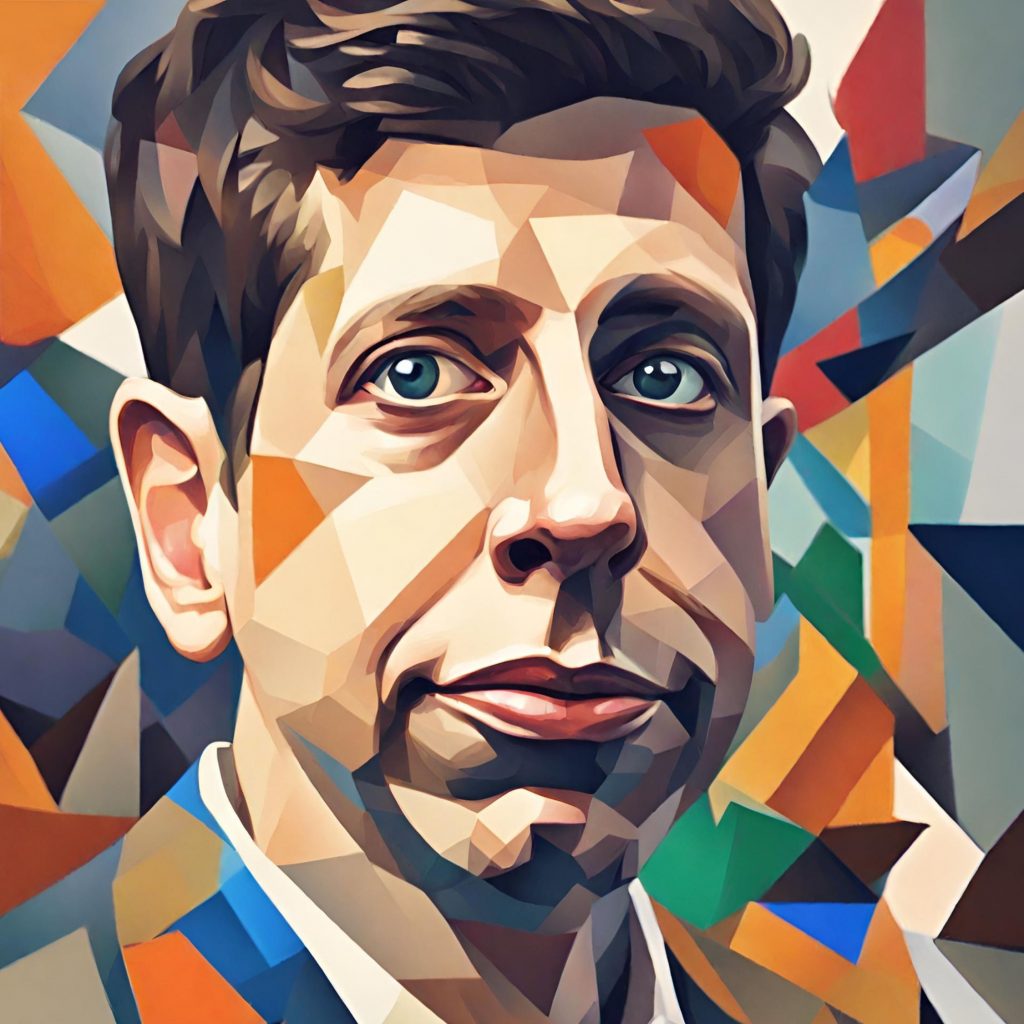In a stunning turn of events, Sam Altman is back at the helm of OpenAI, the tech startup responsible for the groundbreaking ChatGPT after briefly accepting a position at Microsoft. The announcement came after a tumultuous week that saw Altman ousted as CEO, only to be rehired after an apparent uprising by OpenAI employees. This corporate saga, reminiscent of a plotline from a TV drama, provides a fascinating glimpse into the dynamics of the AI industry and the challenges it faces.
The saga began last Friday when the board of the nonprofit group overseeing OpenAI made the unprecedented decision to remove Altman as CEO. The official statement cited Altman’s lack of consistent candor in communications with the board as the primary reason for his removal, hindering the board’s ability to fulfill its responsibilities. The subsequent days unfolded like a high-stakes tech thriller, with interim CEOs appointed, rumors of Altman joining Microsoft, negotiations, and the looming threat of mass resignations by OpenAI employees.
The situation reached a resolution with Altman’s return as CEO and the promise of a new board to replace the one that ousted him. The freshly constituted board includes heavyweights like former Salesforce co-CEO Bret Taylor, former White House adviser Larry Summers, and Quora CEO Adam D’Angelo. The reshuffle saw the departure of previous board members, leaving the reasons behind Altman’s removal still shrouded in mystery.
What Was Sam Altman’s Removal About?
Brad Lightcap, OpenAI’s chief operating officer, emphasized in a memo to employees that Altman’s removal was not related to malfeasance or any financial, business, safety, or security/privacy concerns. However, reports from The New York Times suggest a year-long internal dispute within the board about the safe development of AI, highlighting differing opinions on the pace of AI technology rollout and its potential impact on human control.
Altman, in a statement on social media, expressed his happiness at returning as CEO and reaffirmed his commitment to OpenAI’s mission. With the new board in place, he looks forward to strengthening the partnership with Microsoft, a crucial ally for OpenAI.
Microsoft CEO Satya Nadella applauded the changes in the OpenAI board, considering it a vital step toward more stable and effective governance. The relationship between OpenAI and Microsoft is longstanding, with Microsoft having invested in the startup and OpenAI utilizing Microsoft’s cloud computing services.
The reinstatement of Altman was met with celebration from OpenAI executives and employees. Mira Murati, interim CEO after Altman’s removal, posted a simple blue heart emoji in response to the announcement, while Greg Brockman, the startup’s president, expressed his eagerness to return to coding.
The support for Altman extended beyond OpenAI, with high-profile figures like former Google CEO Eric Schmidt and tech billionaire Elon Musk coming to his defense. Musk, an early donor to OpenAI, emphasized that Altman’s return was preferable to an alternative scenario where Altman and most of OpenAI’s employees might have joined Microsoft, emphasizing the importance of avoiding concentration of power.
The drama unfolded against the backdrop of OpenAI’s continued innovation, as the company rolled out a new voice feature for ChatGPT. In a subtle nod to the recent events, the announcement included a lighthearted joke, perhaps signaling a desire to move past the tensions and refocus on the groundbreaking work at hand.
As the dust settles on this gripping episode in the history of OpenAI, the AI industry at large is left to ponder the implications of such internal strife on the development and governance of advanced technologies. The OpenAI drama serves as a reminder that even in the race for AI supremacy, managing internal conflicts and ethical considerations are crucial for the industry’s success and public trust.
Ambiguity Seems to Be The New Normal
The ambiguity surrounding the reasons for Altman’s removal has sparked broader discussions about the state of the AI industry. As AI continues to evolve rapidly, the need for clear governance, ethical guidelines, and transparency becomes increasingly paramount. OpenAI’s commitment to developing AI for the benefit of humanity places it at the nexus of these considerations, making Altman’s ouster and subsequent return a focal point for industry observers and participants alike.
The reported concerns about Altman’s rapid push for commercial expansion echo broader conversations within the AI community. The delicate balance between innovation and ethical responsibility has become a central theme in discussions about AI development. The industry faces ongoing debates about the speed at which AI technologies should be rolled out, particularly in contexts where human control might be at risk.
The involvement of high-profile figures, including former Google CEO Eric Schmidt and Tesla’s Elon Musk, in supporting Altman underscores the interconnected nature of the tech industry and the collaborative efforts required for AI advancements. Musk’s mention of the potential alternative scenario where Altman and OpenAI employees might have joined Microsoft highlights concerns about concentration of power in the industry and the need for diverse, independent voices to shape the future of AI.

The return of Altman as CEO, coupled with the reshuffling of the OpenAI board, marks a turning point in this gripping saga. The newly constituted board, with heavyweights from technology, academia, and industry, signals an effort to bring diverse perspectives to the table. Microsoft’s encouragement of the changes in the OpenAI board emphasizes the collaborative nature of the industry and the importance of stable governance for the successful development and deployment of AI technologies.
As OpenAI navigates this challenging chapter in its history, the broader AI industry is left to grapple with the lessons and implications of the saga. The need for transparent communication, ethical leadership, and careful consideration of the societal impacts of AI technologies has never been more apparent. The OpenAI drama serves as a stark reminder that, as AI advances, the industry must prioritize responsible development to ensure that these transformative technologies truly benefit humanity.


